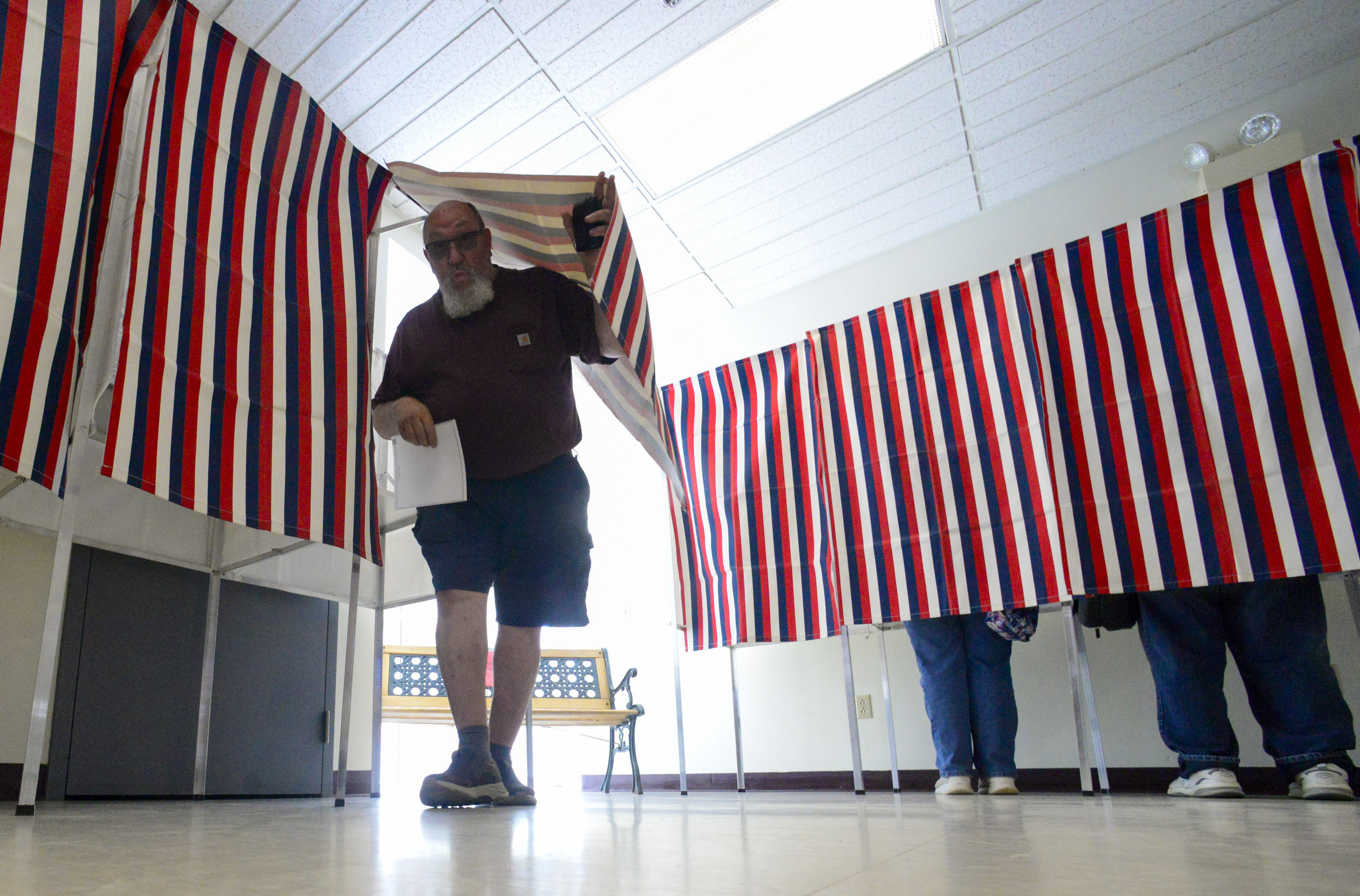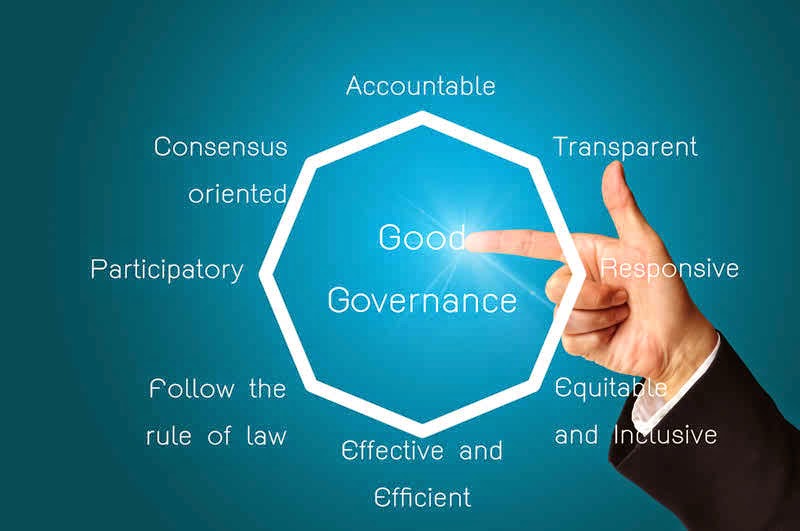State Bills Would Require Passport or Birth Certificate to Register to Vote – Ms. Magazine

Report on Voter Registration Legislation and its Implications for Sustainable Development Goals
Introduction: Legislative Barriers to Inclusive Governance
Recent legislative trends in the United States, particularly at the state level, present significant challenges to the achievement of key Sustainable Development Goals (SDGs). Bills mirroring the federal SAVE Act, which mandate documentary proof of citizenship such as a passport or birth certificate for voter registration, are being considered and enacted. These policies, while ostensibly aimed at preventing noncitizen voting, risk undermining the core principles of SDG 16 (Peace, Justice and Strong Institutions) and SDG 10 (Reduced Inequalities) by creating substantial barriers to political participation for eligible citizens.
Legislative Developments Undermining Inclusive Institutions (SDG 16)
Enacted “Show-Your-Papers” Legislation and Institutional Efficacy
The enactment of restrictive voter registration laws in several states directly conflicts with SDG Target 16.7, which calls for ensuring responsive, inclusive, participatory, and representative decision-making. These laws create complex and often confusing systems that disenfranchise eligible voters, thereby weakening the integrity and inclusivity of democratic institutions.
- Indiana: A new law requires individuals registering with temporary credentials to present a passport, birth certificate, or naturalization papers within 30 days. This policy disproportionately affects newly naturalized citizens who are eligible to vote but may not have updated their identification documents, thus impeding their right to participate in governance.
- Wyoming: Legislation now requires specific citizenship documents for voter registration. A concurrent law adds noncitizenship notations to driver’s licenses, raising concerns about discrimination and harassment, which runs counter to the goal of peaceful and inclusive societies (SDG 16).
- New Hampshire: The temporary implementation of a similar law during local elections resulted in confusion and the disenfranchisement of nearly 100 voters, demonstrating how such policies undermine the effectiveness and transparency of electoral processes, a key component of SDG Target 16.6.
- Louisiana: A law was enacted directing the state to implement a proof-of-citizenship requirement but failed to provide guidance, leaving voters and election officials in a state of uncertainty. This lack of clarity is a failure of effective and accountable governance.
Disproportionate Impact and Increased Inequality (SDG 10 & SDG 5)
These legislative measures threaten to exacerbate existing disparities and roll back progress on SDG 10 (Reduced Inequalities) and SDG 5 (Gender Equality). By imposing documentation requirements that not all citizens can easily meet, these laws create unequal access to the fundamental right to vote.
The policies disproportionately impact specific demographics, undermining SDG Target 10.2, which aims to empower and promote the political inclusion of all:
- Newly Naturalized Citizens: Face administrative hurdles in proving their eligibility before their other official documents are updated.
- Married Women: As seen in New Hampshire, women whose married names do not match their birth certificates face significant barriers. This is a direct challenge to SDG 5, which seeks to ensure women’s full and effective participation in political life.
- Older Voters and Voters with Disabilities: Proposed requirements for absentee ballots, as seen in New Hampshire, would place an undue burden on these groups, limiting their political participation.
- Low-Income Citizens: Tens of millions of Americans lack ready access to the required documents, creating a significant barrier to exercising their right to vote.
Voter Purge Policies and the Risk to Democratic Integrity
Flawed Data and Rushed Processes Threaten Fundamental Freedoms
Several states have enacted aggressive voter purge laws that, while claiming to target noncitizens, rely on flawed and outdated data, leading to the wrongful removal of eligible voters. This practice directly contravenes SDG Target 16.10, which obligates states to protect fundamental freedoms, including the right to political participation.
- Indiana: A new law mandates the removal of voters from the rolls within 48 hours if a comparison with DMV records indicates a lack of citizenship documentation, a process highly susceptible to error due to outdated data.
- Kansas: Requires voter removals within five business days based on similar DMV data comparisons, placing the burden on purged individuals to prove their citizenship.
- Iowa and Wyoming: Have implemented similar systems based on unreliable data, creating uncertainty and requiring citizens to provide “evidence” of their eligibility without clear guidance.
- Utah, Idaho, and Oklahoma: Have enacted laws permitting the use of federal databases like the Systemic Alien Verification for Entitlements (SAVE) program, which is known to be incomplete and can lead to the misidentification and disenfranchisement of U.S.-born citizens.
Historical Precedent of Erroneous Disenfranchisement
The risks associated with these policies are not theoretical. Past attempts at similar purges have consistently resulted in the wrongful disenfranchisement of eligible citizens, demonstrating a failure to build the accountable and effective institutions called for in SDG Target 16.6.
- In Virginia, dozens of citizens were wrongly removed from voter rolls due to clerical errors at the DMV.
- In Texas and Ohio, similar programs mistakenly targeted and removed eligible American citizens.
- A federal court blocked a purge in Alabama that would have incorrectly removed at least 2,000 eligible voters.
Conclusion: Legal and Developmental Implications
Contradiction with National Law and International Goals
These state-level legislative actions are in direct opposition to established U.S. law, including the National Voter Registration Act, and undermine the nation’s commitment to international development frameworks. By restricting access to the ballot box, these laws weaken the foundations of a just, peaceful, and inclusive society as envisioned by the Sustainable Development Goals. They systematically erode progress on SDG 16 by making institutions less inclusive and accountable, and on SDG 10 and SDG 5 by deepening political inequalities. The rejection of these bills in a majority of states where they were introduced, however, sends a clear message in support of inclusive governance and the protection of fundamental democratic rights.
SDGs Addressed in the Article
-
SDG 16: Peace, Justice and Strong Institutions
The article extensively discusses the legal and institutional frameworks governing elections. It focuses on the enactment and consideration of laws (like the SAVE Act and state-level bills) that affect the integrity and accessibility of the voting process. The discussion revolves around the effectiveness and fairness of governmental institutions responsible for managing voter registration and elections, as well as legal challenges to these new laws, directly connecting to the goal of promoting just, peaceful, and inclusive societies.
- The article highlights how new laws in states like Indiana and Wyoming create “unnecessary” and hard-to-implement voter registration systems, challenging the effectiveness and transparency of electoral institutions.
- It mentions legal challenges and lawsuits in several states, including Wyoming, New Hampshire, and Louisiana, which points to the theme of access to justice and promoting the rule of law.
-
SDG 10: Reduced Inequalities
The article repeatedly points out that the “show-your-papers” voter registration requirements would disproportionately impact certain segments of the population, thereby increasing inequality in political participation. It argues that these laws, while purportedly targeting noncitizen voting, would in reality disenfranchise millions of eligible American citizens who lack easy access to specific documents.
- The article states the laws would “disproportionately affect” older voters and voters with disabilities, particularly in the context of absentee voting in New Hampshire.
- It notes the potential to block newly naturalized citizens from voting, as they “may still be using an ID from before their naturalization.”
- The broader argument is that the policies would “block tens of millions of American citizens from voting because they don’t have ready access to the documents required,” creating an unequal barrier to a fundamental right.
-
SDG 5: Gender Equality
The article provides a clear example of how voter ID laws can have a specific, negative impact on women, linking the issue to gender equality and women’s full participation in public life. The requirement for documents like a birth certificate can create hurdles for women who have changed their names upon marriage.
- A specific case from New Hampshire is cited: “one woman whose name did not match her birth certificate because she was married.” This illustrates a gender-specific barrier to exercising the right to vote, which is a form of political participation.
Identified SDG Targets
-
SDG 16: Peace, Justice and Strong Institutions
- Target 16.6: Develop effective, accountable and transparent institutions at all levels. The article critiques the new laws for creating chaotic and difficult-to-implement systems. For example, it mentions that Louisiana’s law went into effect with “no instruction or implementation from the secretary of state’s office,” leaving voters in a state of uncertainty and undermining institutional effectiveness and transparency.
- Target 16.7: Ensure responsive, inclusive, participatory and representative decision-making at all levels. The core argument of the article is that these laws suppress voting and are designed to “block tens of millions of American citizens from voting.” This directly undermines the goal of ensuring inclusive and participatory decision-making by creating barriers that prevent eligible citizens from taking part in elections.
-
SDG 10: Reduced Inequalities
- Target 10.2: By 2030, empower and promote the social, economic and political inclusion of all, irrespective of age, sex, disability, race, ethnicity, origin… The article demonstrates how these laws work against political inclusion. It explicitly states that “older voters and voters with disabilities would be disproportionately affected” by a New Hampshire bill, and that newly naturalized citizens could be blocked from registering, thus hindering their political inclusion.
- Target 10.3: Ensure equal opportunity and reduce inequalities of outcome, including by eliminating discriminatory laws, policies and practices… The article frames the voter registration laws as policies that, in practice, are discriminatory. By creating requirements that are harder for some citizens to meet than others (e.g., those who don’t have a passport or birth certificate readily available), the laws create unequal opportunities for political participation.
-
SDG 5: Gender Equality
- Target 5.5: Ensure women’s full and effective participation and equal opportunities for leadership at all levels of decision-making in political, economic and public life. The article provides a direct example of a policy hindering a woman’s ability to participate in political life (voting). The case of the woman in New Hampshire whose married name did not match her birth certificate shows a direct barrier to “full and effective participation” for women.
Implied and Mentioned Indicators
-
Indicators for SDG 16
- Number of voters turned away at polling places: The article mentions that in New Hampshire, “nearly 100 voters were reportedly turned away at polling places for lacking proper documents.”
- Number of eligible voters wrongly removed from voter rolls: The article refers to a federal court in Alabama blocking a purge that “would have mistakenly removed at least 2,000 eligible American voters” and notes that states like Ohio, Texas, and Virginia have “mistakenly removed eligible citizens from the rolls.”
- Number of states enacting or considering restrictive voter laws: The article states that “lawmakers in at least 27 states have introduced one or more bills in 2025 that would require some or all voters to show citizenship documents to vote.”
-
Indicators for SDG 10
- Number of lawsuits challenging discriminatory laws: The article implies this as an indicator by noting that “New Hampshire and Louisiana are facing federal lawsuits challenging the constitutionality of these new laws.”
- Proportion of the population without required documentation: The article implies this metric by stating the SAVE Act would “block tens of millions of American citizens from voting because they don’t have ready access to the documents required.”
-
Indicators for SDG 5
- Number of women disenfranchised due to name-change discrepancies: While not providing a total number, the article uses a specific, qualitative example as an indicator of this problem: “one woman whose name did not match her birth certificate because she was married.” This anecdote serves as an indicator of a systemic issue affecting women.
Summary of Findings
| SDGs | Targets | Indicators |
|---|---|---|
| SDG 16: Peace, Justice and Strong Institutions |
|
|
| SDG 10: Reduced Inequalities |
|
|
| SDG 5: Gender Equality |
|
|
Source: msmagazine.com

What is Your Reaction?
 Like
0
Like
0
 Dislike
0
Dislike
0
 Love
0
Love
0
 Funny
0
Funny
0
 Angry
0
Angry
0
 Sad
0
Sad
0
 Wow
0
Wow
0












































































